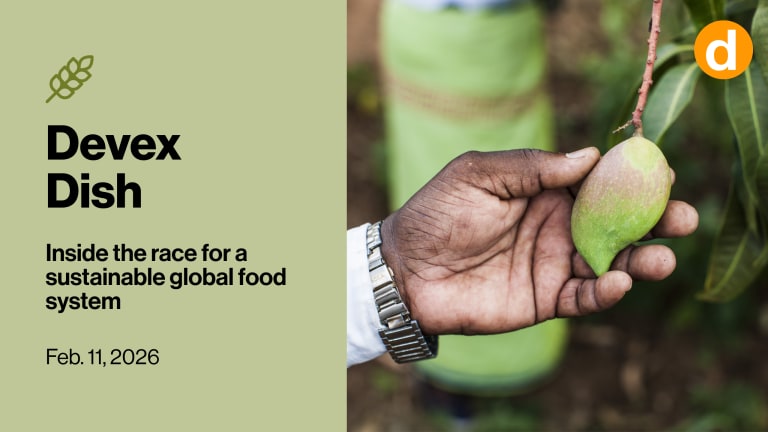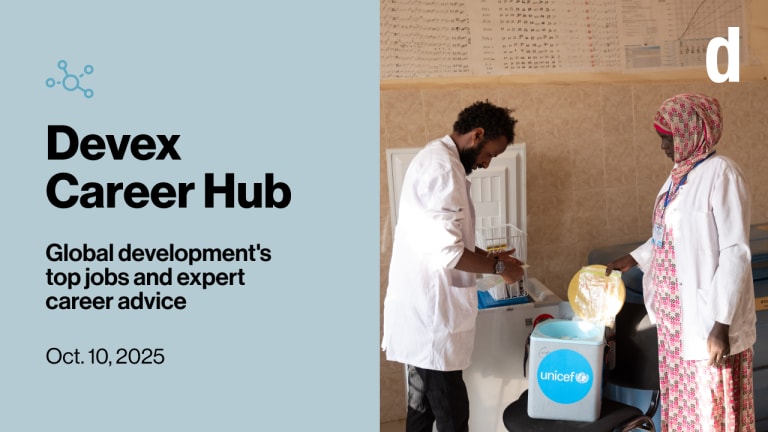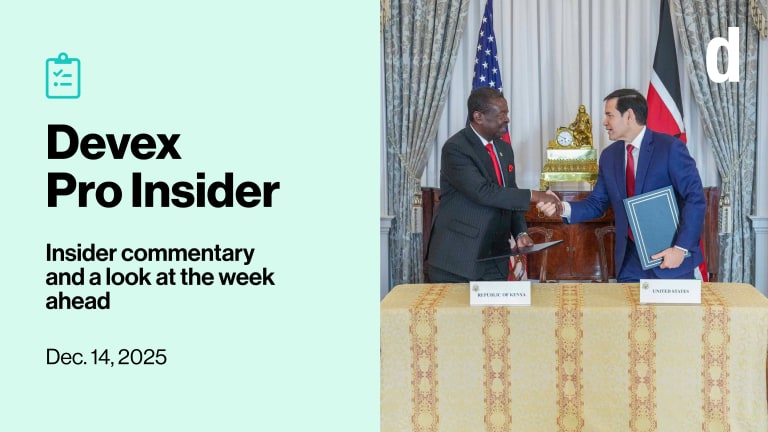WASHINGTON — Lise Kingo has spent the past five years at the helm of United Nations Global Compact, the world’s largest corporate sustainability initiative, and the biggest challenge she sees today in getting companies to play their part in addressing the Sustainable Development Goals is moving them from awareness to action, she told Devex in an interview.
Kingo took up the job just before the SDGs were officially adopted in 2015 and since then has been focused on “creating awareness and action around the global goals,” she said. Kingo said she is proud of the work UN Global Compact has done in creating platforms for business action around climate, gender equality, and finance, getting organizations to commit to targets and providing tools to track their progress.
But she said the next big challenge is pushing companies to translate knowledge into action. That will be a task for her successor in the job, Sanda Ojiambo, who started as UN Global Compact’s CEO this week as Kingo stepped down.
This story is forDevex Promembers
Unlock this story now with a 15-day free trial of Devex Pro.
With a Devex Pro subscription you'll get access to deeper analysis and exclusive insights from our reporters and analysts.
Start my free trialRequest a group subscription







